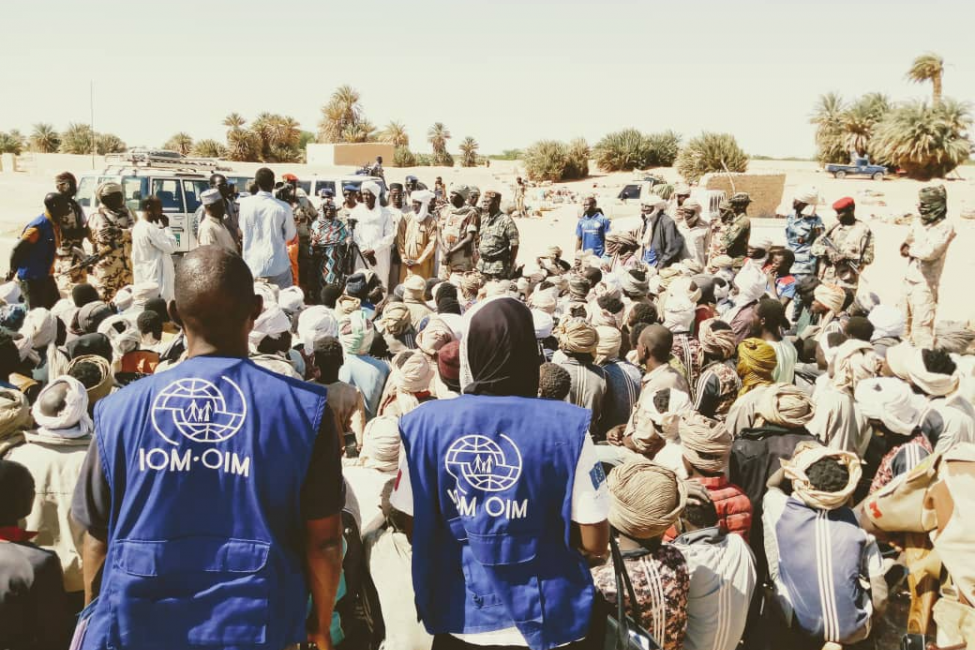
Libyan authorities prepared to deport 248 undocumented migrants to their home countries, Niger and Chad. This joint effort involved rival administrations in the war-torn country.
An official from Tripoli’s government agency against clandestine migration stated that 120 Nigeriens had left Libya for Niamey. This repatriation effort occurred in coordination with the UN’s International Organization for Migration (IOM).
The official also noted that 128 migrants would be transported to the border with Chad. This action was coordinated with Libya’s eastern-based authorities.
Following the fall of Moamer Kadhafi in 2011, Libya became divided between rival authorities based in the east and the west.
The North African country has transformed into a hub for tens of thousands of migrants seeking to reach Europe by sea every year. These migrants often fall prey to human trafficking gangs that extort them for money.
Moussa al-Koni, vice president of the Libyan presidential council, addressed the issue during a news conference. He emphasized that all parties had paid a significant price due to these groups that exploit migrants for profit.
Koni stressed the need for cooperation between countries of departure, transit, and destination to effectively combat the criminal networks of traffickers operating in Libya, Chad, and Niger.
He advocated for a collective effort that would allow migrants to remain in their home countries and live with dignity.
IOM figures indicate that over 700,000 migrants, primarily from Niger and Egypt, were present on Libyan territory between May and June of this year.
Libyan Interior Minister Imed Trabelsi met with IOM’s regional representative Othman Belbeisi in Tripoli. Their discussions aimed to establish a mechanism that would facilitate the repatriation of irregular migrants.
The joint effort to deport undocumented migrants highlighted the ongoing challenges faced by Libya in addressing the issue of irregular migration.
International cooperation remained crucial in effectively tackling the root causes of migration and protecting the rights of migrants in transit countries like Libya.
